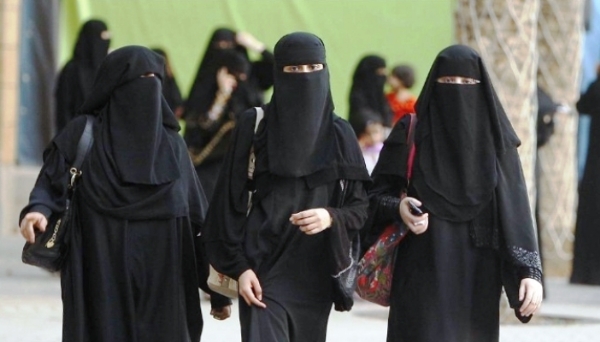Saudi Arabia bans abaya in exam halls but similar action in India is called "anti-secular"
22 Dec 2022 11:02:48
In a significant development, the Kingdom of Saudi Arabia has banned the Abaya, the long loose cloak worn by women, in examination halls. It has instructed the students to wear their prescribed uniforms while attempting the examinations. This came after a question was asked by Dalia, a Saudi girl, who wanted to know if an Abaya was permissible in exam halls.

In a tweet, the Saudi Education and Training Evaluation Commission (ETEC) announced, "Welcome: It is necessary to adhere to the attire that conforms to the regulation of preserving public decency in the examination venues, bearing in mind that it is forbidden to wear the abaya at the time of the examination. Good luck."
Abaya, widely worn by women in Saudi, is a loose cloak worn over the dress to hide the figure and is accompanied by a scarf covering the hair, shoulders and neck and often the mouth. It is very similar to the ‘burqa’ common among Muslims in India, Pakistan and Bangladesh. Besides, it is considered symbolic of Islamic piety.
As per Saudi law, which is based on a fundamentalist interpretation of the Sharia law, women had to wear an Abaya when out in public spaces in the kingdom. However, in March 2018, Crown Prince Mohammed bin Salman, said that women do not have to wear the abaya and hijab as long as they maintain a 'modest' appearance in public but in reality the dress code has been enforced by the government.
Following this, Saudi women launched an online campaign under the Arabic hashtag "Abaya Inside Out" in protest of the kingdom's law. They started wearing the Abaya turned inside-out to express their dissent over the Sharia law that they say violates Saudi women’s freedom to clothe.
It should be noted that the ETEC, which is responsible for accrediting educational and training systems, said that all students must wear the uniform and Saudi Arabia is home to the cities of Mecca and Medina, centres of the Islamic faith where Muslims from all parts of the world congregate for pilgrimages
Such development comes at a time when a similar action was taken by schools in Karnataka, India where females were asked not to wear a hijab during examinations which had unleashed several protests across the country. It is still continued to be called anti-secular, anti-freedom of choice, and discriminatory by the so-called leftists and liberals.
The matter was taken up to the Karnataka High Court which after several hearings, dismissed the pleas and upheld the state government’s right to enforce uniforms equally on all students, saying that petitioners could not establish hijab as an essential religious practice in Islam.
However, in October, a controversy erupted when some female Muslim students accused a Hindu male teacher of forcibly removing their ‘hijab’ during the examination. Interestingly, a Muslim student has come forward to explain how her Hijab-clad classmates had put forth wrong allegations.
Slamming these students, a student named Aiman Fatima from the college was also seen supporting the principal. Fatima said, "Some girls were complaining that Sir has got our headscarf removed. I told them that while it was good that they were wearing the scarf, Sir asked them to remove it only because students are known to cheat using Bluetooth devices."
"They started citing religion and all that. I wonder where does their religion go when they attend a function? How come they remember their religion only during exams? It it because of girls like these that people start questioning the religion itself." Asked by a journalist if the girls in the college are asked to remove their headscarf in general, Fatima said it never happens.
